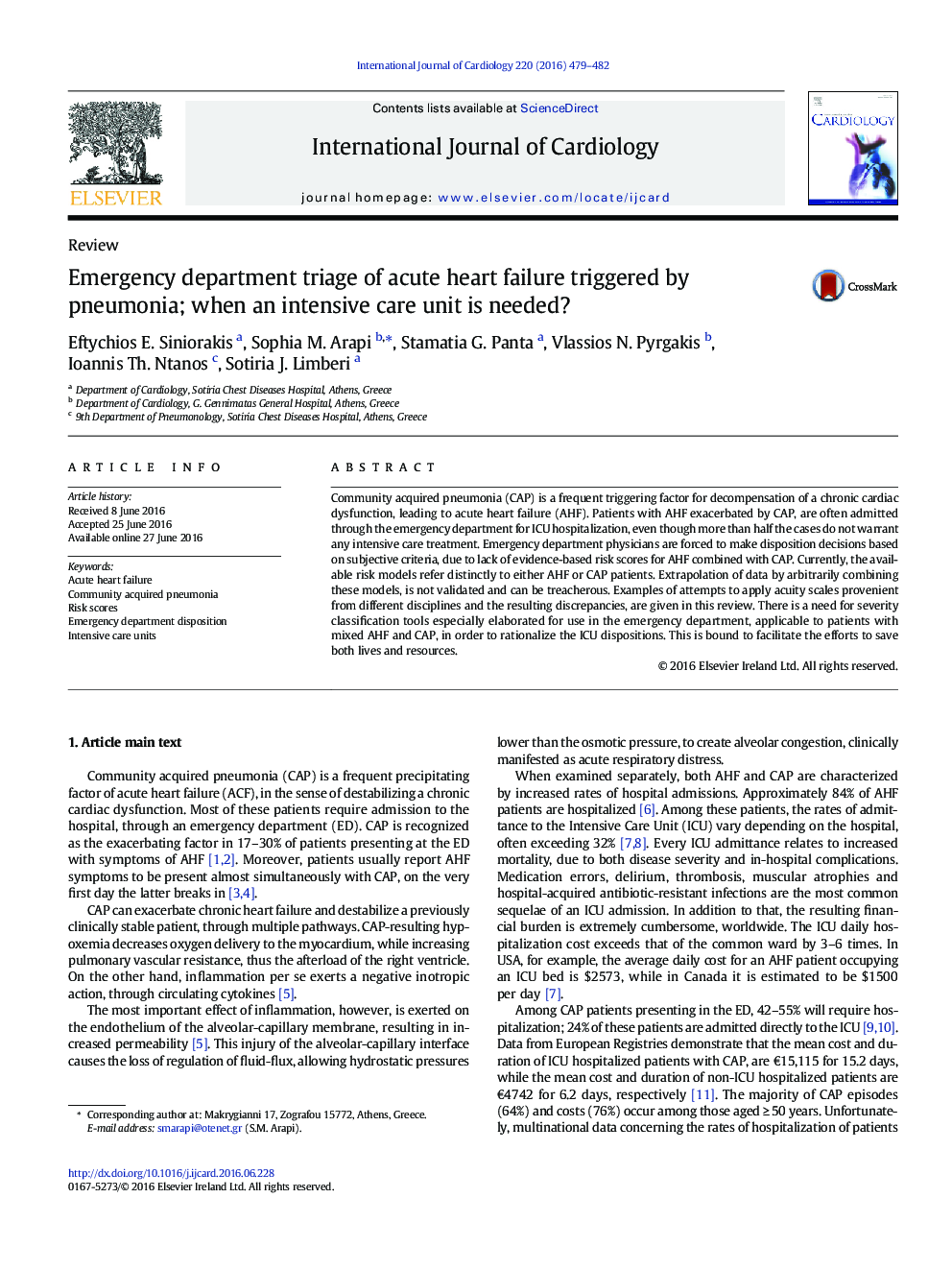| Article ID | Journal | Published Year | Pages | File Type |
|---|---|---|---|---|
| 5963343 | International Journal of Cardiology | 2016 | 4 Pages |
â¢Risk scores for acute heart failure triggered by pneumonia are lacking.â¢This results in irrational use of resources and a pressing financial burden.â¢Such risk tools are mandatory to rationalize the intensive care unit admissions.
Community acquired pneumonia (CAP) is a frequent triggering factor for decompensation of a chronic cardiac dysfunction, leading to acute heart failure (AHF). Patients with AHF exacerbated by CAP, are often admitted through the emergency department for ICU hospitalization, even though more than half the cases do not warrant any intensive care treatment. Emergency department physicians are forced to make disposition decisions based on subjective criteria, due to lack of evidence-based risk scores for AHF combined with CAP. Currently, the available risk models refer distinctly to either AHF or CAP patients. Extrapolation of data by arbitrarily combining these models, is not validated and can be treacherous. Examples of attempts to apply acuity scales provenient from different disciplines and the resulting discrepancies, are given in this review. There is a need for severity classification tools especially elaborated for use in the emergency department, applicable to patients with mixed AHF and CAP, in order to rationalize the ICU dispositions. This is bound to facilitate the efforts to save both lives and resources.
